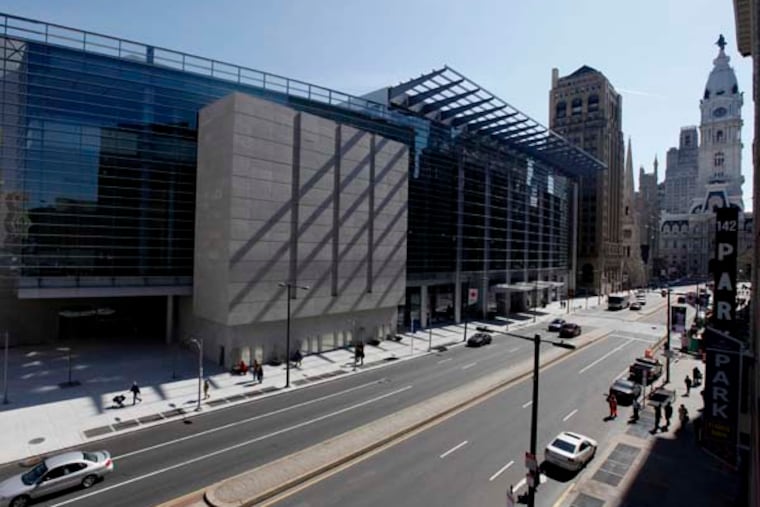PhillyDeals: Why is the Convention Center a privatization target?
The main problem keeping more big shows from the Pennsylvania Convention Center is that too many customers don't feel they are getting value for all they pay under its current labor arrangements, consultant Public Financial Management Inc. (PFM) wrote in a recent report to the center's board, echoing earlier reports.

The main problem keeping more big shows from the Pennsylvania Convention Center is that too many customers don't feel they are getting value for all they pay under its current labor arrangements, consultant Public Financial Management Inc. (PFM) wrote in a recent report to the center's board, echoing earlier reports.
If labor is the issue, why is the center's board recruiting private firms to replace its management? PFM credits the managers for bringing in more money and spending less than the center's budget. Private management will "not necessarily" solve labor problems, PFM said.
Is it because Gov. Corbett advocates privatizing government services and wants a win now that his plans to farm out the state lottery and State Stores have slowed?
"I didn't feel pressure from the commonwealth to do this," Gregory J. Fox, the Philadelphia lawyer who chairs the center's board, said. Sure, Corbett's deputy chief of staff, Kathleen Bruder, represents the state at board meetings.
"[She] was sitting right there as this unfolded," Fox said. "It was a board-generated initiative, not a commonwealth-generated initiative."
Is it because the would-be private managers are politically connected?
John Hawkins, lobbyist for Harrisburg's Steven Wodjak & Co., has called board members asking to meet on behalf of his client, Comcast Spectacor's Global Spectrum, one of two firms that have expressed interest in running the center. The other, SMG, is also well-wired: It managed to get the Atlantic City Convention Center's decision to replace SMG with Global Spectrum rescinded. That job is being re-bid.
Fox says he did not meet with the lobbyist. "The rules are kind of murky, and I decided not to," he said. He says his board of political appointees holds the public interest above political or business agendas.
The people who run the Convention Center's unique, complex operating arrangements accept that an overhaul may be in the works. Albert "Mitch" D'Amico, vice president of Elliott-Lewis, the contractor that manages the center's labor agreements, said: "There is enormous potential to leverage relationships and experience from the various venues that both [SMG and Global Spectrum] currently manage."
Until recently, Elliott-Lewis was paid an 8 percent surcharge on convention labor fees - so the firm "actually benefited from higher labor costs," PFM noted in its report. When the fee was scrapped, the center gave Elliott-Lewis its utilities to manage, so it could make its profit that way.
Besides the center's management, its labor supply and operations contracts are out for bid in 2013. Union agreements are up for renewal, too.
Like other convention centers, Philadelphia's operates at a deficit - almost $1.5 million a month. But that deficit has been more than covered by the city hotel tax. Hotel managers' complaints that not enough shows are booked after 2014 have put pressure on the center to do something.
What might private owners do better? PFM reviewed the convention centers SMG runs in Chicago and Detroit and suggested unions might make work-rule concessions to private managers, if they think that won't set bad precedents for government construction jobs. Also, Global Spectrum and SMG say they can recruit new shows from their clients in other cities.
But, PFM added, "These firms may also have a conflict of interest" between Philadelphia and their other venues. And they need to make a profit, unlike the center's current management, which is already leaner than at similar facilities in other cities, the consultant said.